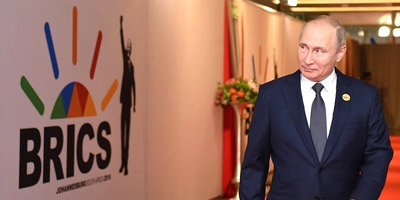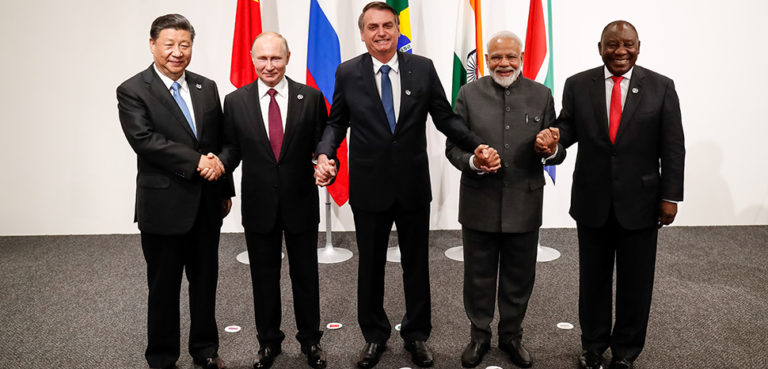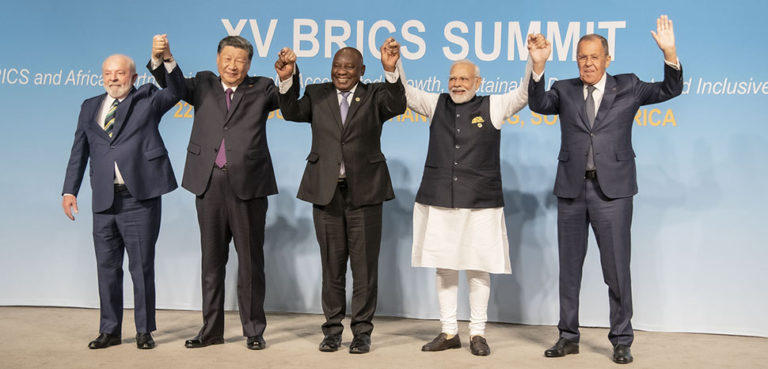In Ernest Hemingway’s novel The Sun Also Rises, a well-known passage centres on a character’s bankruptcy. In reflections therein on how he arrived at his misfortune, the following punchline is invoked: “Gradually, then suddenly.”
Changes in international politics happen much the same way, as the BRICS’ (Brazil, Russia, India, China and South Africa) story to-date attests.
It is fitting and timely to frame the BRICS in such terms, calling attention to the group’s recently held XV Summit. This landmark summit gave new impetus to the group, whose history is steeped as much in a narrative of reform of the US/Western-leaning international order as it is in a narrative of righteousness.
Some two decades ago, appalled with some of the worst excesses of the unipolar moment, Brazil took the lead in marshalling together a handful of like-minded, emerging nations.
At the time, in what was indicative of great hubris, Washington determined that “the United States enjoys a position of unparalleled military strength and great economic and political influence.”
Moreover, following 9/11 and related events, which ushered in the Global War on Terror, Washington zealously pursued military campaigns in the Middle East and beyond.
The idea of such a grouping of emerging nations was to make common cause with each other, with a view to pushing back on Washington’s unilateralism.
In this enterprise, Brasília, for instance, drew on “Latin American contributions to international order [which] spring from a tradition of ‘republican internationalism’, rooted in the region’s domestic political traditions and practices.”
Years later, as regards the Iraq War, other like-minded developing countries—like those of the Caribbean Community (CARICOM)—unreservedly identified with and publicly got behind those who blazed a trail much earlier. The latter took issue with the Bush Doctrine, “the policy framework for the US invasion of Iraq in 2003.”
Short of venturing into a history of the BRICS, for our purposes, it is perhaps useful to emphasize that—over the years—the group’s concerns with the international order’s Western-built/oriented economic scaffolding and with its geopolitical ones have become more tightly bound, as international affairs analysts have pointed out.
Associated calls for reform of global governance have fed into this narrative, coming at the expense of conventional understandings of the same. In this regard, the narrative orthodoxy reflects the post-war status quo, which is seemingly tone deaf to contemporary realities.
Instructively, the BRICS group came to signify those realities.
In the decade-plus since taking its current form, the BRICS have gradually become more assertive and weightier a group. The group looms large on the international stage, featuring in the geopolitical test of wills of our age, whose respective Sino-US and Russian-US relational axes form the fulcrum of the multipolar international order’s imminent emergence.
With the advent of the Ukraine war, the BRICS group has suddenly assumed a new order of prominence.
The irony is that, as of February 24, 2022, on account of Russia’s full-scale invasion of Ukraine, the group is confronted with a throwback to its past qua origin story.
The difference is that, this time around, one of its own members is in the storm centre.
Not to be outdone by Washington’s unipolar era-related overreach, in this interstices of eras, the Kremlin’s Ukraine war-related hubris is attuned to 21st century (information) warfare.
The very (hard power-related) unilateralist narrative that BRIC—established in 2009—and later BRICS (when South Africa joined the group in 2010) railed against in the 2000s and 2010s, respectively, appears not to figure in relation to Russia’s war of aggression.
To the degree that the BRICS group’s origin story draws significantly on its moral indignation with the unipolar moment going awry, now that the other shoe has dropped—in unipolar era-related egress—at least four of its five members are probably wrestling with and haunted by an inconvenient, hard truth.
The views expressed in this article belong to the authors alone and do not necessarily reflect those of Geopoliticalmonitor.com.
The author would like to thank Ambassador Riyad Insanally for his generous and insightful advice on an early version of this article, as well as his engaged commentary on related work. Special thanks to Ambassador David Hales for perusing an earlier draft of this article and for wide-ranging discourse, which shaped the author’s perspective on underlying themes. The author is especially grateful to Ambassador Patrick I. Gomes for his incisive feedback, openness and encouragement regarding his scholarship, which also benefits from Ambassador Colin Granderson’s input.




